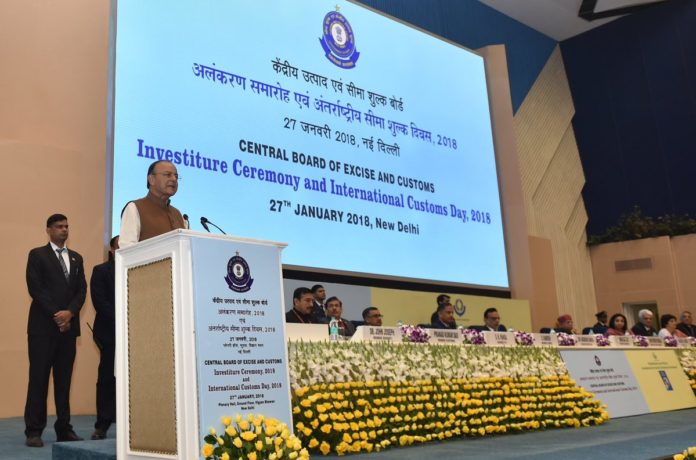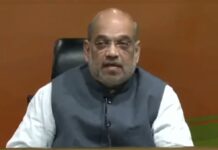The Finance Minister, Arun Jaitley, tabled the Economic Survey of 2017-18 in the Parliament today. “In the last few years, the Economic Survey has become a must-read and the most-read document on the Indian economy said Arun Jaitley. Apart from how India fared in the last one year, the survey document also projected what lies ahead. The Survey Sees GDP growth accelerating to 7-7.5% In 2018-19.
Summing up the major reforms in the first chapter, the survey document noted that, “major reforms were undertaken over the past year. The transformational Goods and Services Tax (GST) was launched at the stroke of midnight on July 1, 2017. And the long-festering Twin Balance Sheet (TBS) problem was decisively addressed by sending the major stressed companies for resolution under the new Indian Bankruptcy Code and implementing a major recapitalization package to strengthen the public sector banks. As a result of these measures, the dissipating effects of earlier policy actions, and the export uplift from the global recovery, the economy began to accelerate in the second half of the year. This should allow real GDP growth to reach 6¾ percent for the year as a whole, rising to 7-7½ percent in 2018-19, thereby re-instating India as the world’s fastest-growing major economy. Against emerging macroeconomic concerns, policy vigilance will be necessary for the coming year, especially if high international oil prices persist or elevated stock prices correct sharply, provoking a “sudden stall” in capital flows. The agenda for the next year consequently remains full: stabilizing the GST, completing the TBS actions, privatizing Air India, and staving off threats to macroeconomic stability. The TBS actions, noteworthy for cracking the long-standing “exit” problem, need complementary reforms to shrink unviable banks and allow greater private sector participation. The GST Council offers a model “technology” of cooperative federalism to apply to many other policy reforms. Over the medium term, three areas of policy focus stand out: Employment: finding good jobs for the young and burgeoning workforce, especially for women. Education: creating an educated and healthy labor force. Agriculture: raising farm productivity while strengthening agricultural resilience. Above all, India must continue improving the climate for rapid economic growth on the strength of the only two truly sustainable engines—private investment and exports.
On the sidelines of the Economic Survey being launched, the Indian stock market zoomed up 300 points in the early day trade and crossed a new record high. The market closed at 36,283.25.
Benchmark indices in India opened the day on a positive note and firmed up further as the session progressed, with both the Sensex and the Nifty scaling fresh record highs in afternoon trade. However, profit booking in the second half of the trading session kept gains in check. Both the benchmark Sensex and the Nifty finally closed the day with gains of over 0.35%. The positive sentiment in the market was given a boost after the Economic Survey tabled in the Parliament today, 29 January 2018, showed that Indian economy is expected to expand at 7-7.5% in 2018-19. However, it also highlighted that against the emerging macroeconomic concerns, policy vigilance will be necessary for the coming year, especially if high international oil prices persist, said Karthikraj Lakshmanan, Senior Fund Manager-Equities, BNP Paribas Mutual Fund.
On the sectoral front, the healthcare, PSU banking and FMCG indices on the National Stock Exchange traded sharply lower, while the auto, IT and media indices registered robust gains.




